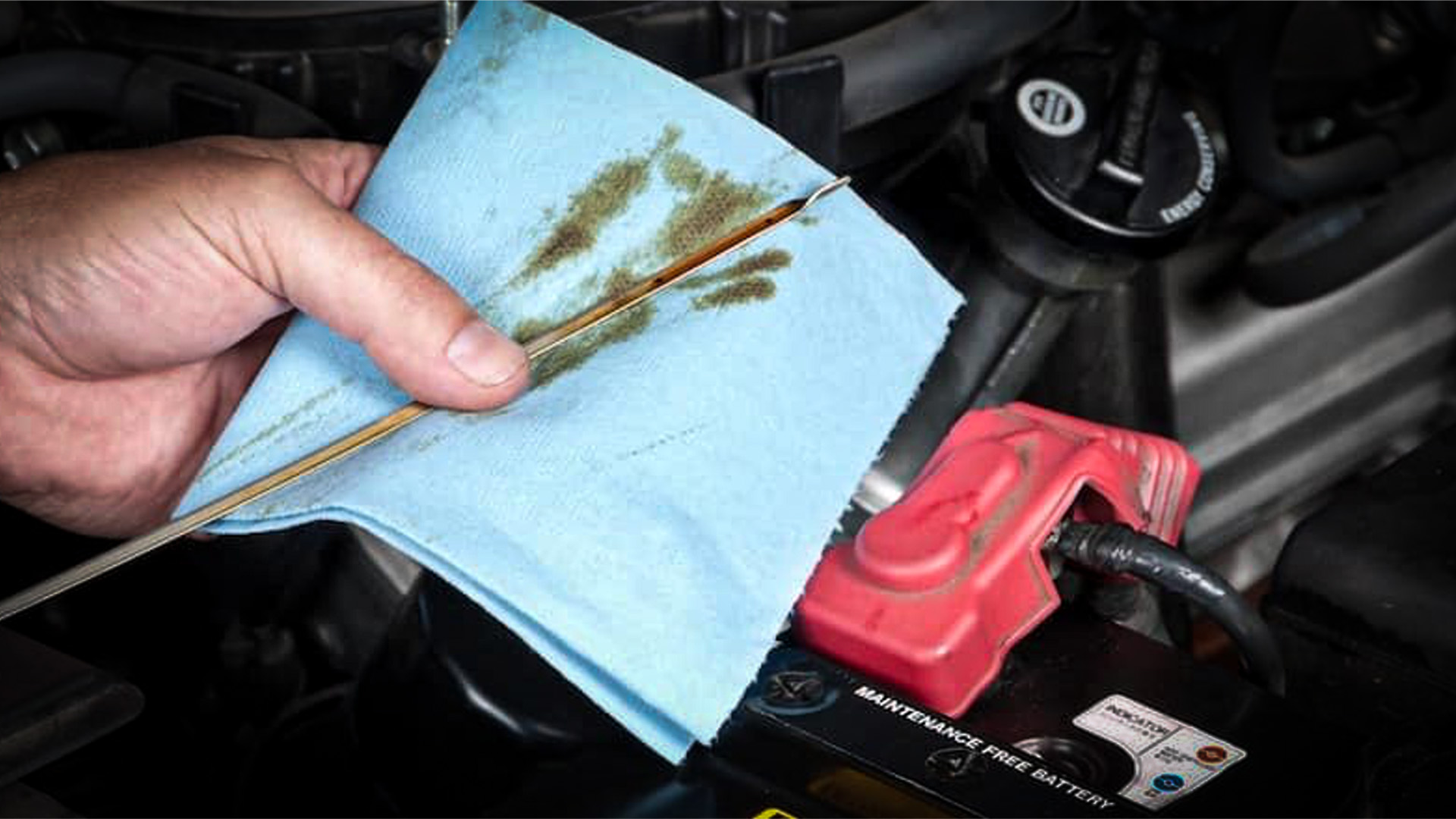“Drive it ‘til the wheels fall off” isn’t the safest decision. So when does it end?

What are the top two causes of premature engine wear and engine component failure?
The first is lack of maintenance, specifically going too long between oil changes. Whether you’re taking care of the family grocery hauler or you do this kind of work for a living, it is crucial to understand the importance of changing the oil at regular intervals. It should be based on how the vehicle is used and the OEM’s guidelines. Following these guidelines can mean the difference between an engine that lasts and one that doesn’t.
The second most common cause of premature engine wear is using the incorrect oil for the vehicle application. The engines rolling off the assembly lines today are highly engineered and sophisticated. The manufacturers have very specific requirements for the oil you should use in them. The days of a generic approach to selecting the oil you use have long been a thing of the past. Always check the owner’s manual or your service information and use ONLY the oil that meets the requirements and specifications of the vehicle manufacturer. Failing to do so on cars that are still under warranty can risk the loss of that warranty in the event of engine damage.
Engine oil serves several important purposes. It cleans the engine as it circulates, picking up contaminants and passing them into the oil filter where they can be collected. Engine oil also contains additives that neutralize acids, prevent corrosion, and protect against oil breakdown.
One of its most important jobs is to provide a thin cushioning film that prevents friction between the metal engine parts as they move against each other. The film also acts as a seal between the cylinder wall and piston rings. The overall reduction in friction reduces heat, cooling the metal components.
But if the oil is contaminated, the wrong type, or past its prime, it won’t be able to flow effectively and that can lead to expensive engine damage.
I guess the first question we need to ask is “Why change the oil at all”? Don’t laugh, there has been talk that some OEMs are working on a “lifetime” fill just as they did on many transmissions. The truth is that the base oil in any quality mineral or synthetic oil degrades very slowly in normal use.
The reason we can’t leave the oil in there forever is twofold.
First, the additives in engine oil that delay degradation gradually break down, causing the oil to oxidize and become increasingly acidic. Second, a filter clogged with contaminants eventually transforms the oil into a kind of honing fluid. Both conditions can corrode critical internal engine components.
Back in the days of carbureted engines and low-quality mineral oils, the three months/3,000-mile service interval made sense. Today, though, some manufacturers are listing intervals as high as 15,000 miles or more.
One reason for this increased interval is the design improvements made to the internal combustion engine in the last 30 years. Modern automobile engines are more efficient and tightly sealed, with less combustion blowby than the big gas guzzlers of the late ‘70s. Modern computer-controlled engine management means less fuel washing down cylinder walls and less liquid contamination of the lubricating oil. Another, and equally important, reason is the improvements made in oil chemistry as well as the advances made in filtration. Without these, the extended service intervals would not be possible.

API/ILSAC oil certification label. Be sure the oil you select has the correct API/ILSAC certification for the vehicle application.
Control of solid contaminants is critical in protecting the engine from accelerated wear. The size of the contaminant a filter can stop is measured in microns. How small a particle can a good oil filter trap? The standard used for testing is 20 microns and quality filters can all trap debris down to approximately 15 microns in size.
How big is 20 microns? Well, to give you an idea, 40 microns is about the size of the dust particles in fine flour. It’s also about the smallest size the human eye can see. But trapping particles that size is not enough to truly protect that engine. In an older GM study, the engineers found that filtering out particles smaller than 30 microns resulted in a 50% reduction in engine wear. Bringing that filtration level down to 15 microns reduced wear by 70%!
Another measurement filters are subjected to when they are tested is the capacity’ or how much, dirt and debris can they hold before they can hold no more. The type of filter media used as well as the number of pleats the filter has goes a long way in determining that capacity. What happens when the capacity is exceeded? If the capacity of the filter media is exceeded, whether due to surpassing the recommended service interval or selecting a low-quality filter, that nice clean filtered oil is being mixed with oil that is contaminated with all sorts of debris. The contaminated oil then becomes, again, a honing fluid that is going to rapidly increase the wear on all the engine’s internal parts.
Using high-quality oil and a cheap filter isn’t doing your wallet, or the engine, any favors. Switching to an extended life oil or synthetic oil from a conventional oil, all in the name of extending their service interval while using the same filter you always used, is a recipe for disaster.

Tech checking oil level. For some OEMs, oil consumption rates of one quart every 2,000 miles is considered normal.
Take the time to explain to your customer how to properly check the oil, and other fluids, under the hood and instruct them to do so at least once a month. Recommend they do this with the engine cold as many manufacturers specify that the vehicle sit for a time (as long as 15 minutes on some cars!) before an accurate reading can be taken.
Some European models don’t have a dipstick, so what then! The oil level is checked using the driver’s information system on the instrument panel. Check the owner’s manual or your service information for the correct way of verifying engine oil level.
If the vehicle is equipped with an oil life monitoring system, tell your customers to be sure to have the oil changed at least annually – regardless of mileage or what the Monitor says. Just be sure to reset the OLM when you do perform the service.
Oil is the lifeblood of the engine and keeping it properly serviced will help your customers get more mileage out of their investment. And as the expert they rely on, it is up to you to make sure the job is done right.
The articles and other content contained on this site may contain links to third party websites. By clicking them, you consent to Dorman’s Website Use Agreement.
Participation in this forum is subject to Dorman’s Website Terms & Conditions. Please read our Comment Policy before commenting.